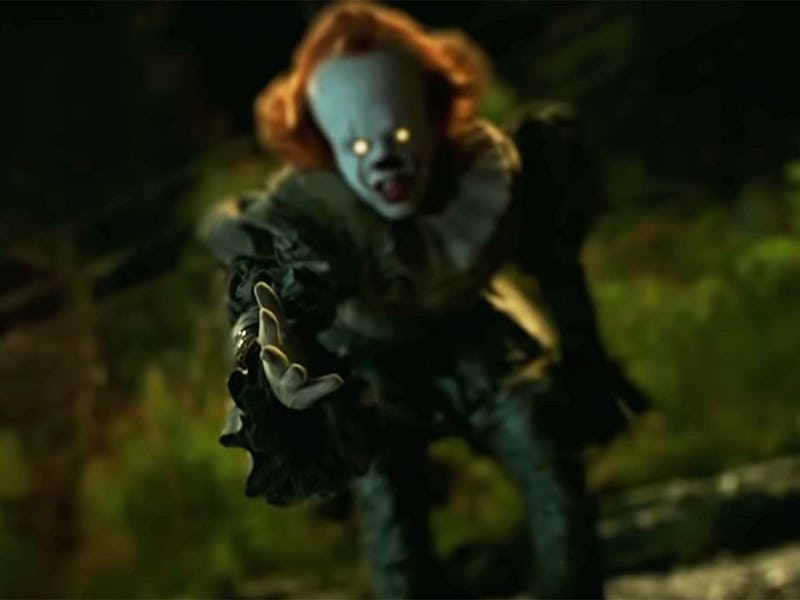5 Years Ago, One Ambitious Stephen King Adaptation Fell Short of Greatness
Sometimes, it's better to just stick with what's on the page.

There are very few authors whose books have inspired more film and TV adaptations than Stephen King. The writer has been, if sometimes indirectly, a constant presence in Hollywood for a little over 40 years now. Throughout that time, everyone from Brian De Palma and Stanley Kubrick, to Mike Flanagan and Frank Darabont have tried their hands at adapting his work. While plenty of movie and TV shows have managed to recapture the flashier aspects of King's writing, though, many adaptations of his work have also lost the humanity of his stories. They've been too caught up in the blood and guts.
That is, unfortunately, the case with It: Chapter Two. When it was released in September 2019, there was more hype surrounding the Andy Muschietti-directed film than any other King adaptation in recent memory. The success of 2017's It two years earlier had raised viewers' expectations for Chapter Two, but the film didn’t ultimately live up to them. It isn't, by any means, the worst Stephen King adaptation that Hollywood has ever produced. But it is among the most disappointing.
There's a reason It is widely regarded as one of the greatest American horror novels of all time. Not only does it feature some of the most uncanny and unexpected horror imagery that you'll likely ever come across as a book reader, but it uses its many scares to explore the unique terrors of childhood and adulthood. Like Muschietti's It films, the book is comprised of scenes set during both the younger and older days of its heroes' — a group of misfits who form the "Losers Club" together — lives. As children, they learn how to outgrow their childhood fears. As adults, they discover the beauty of growing up and moving on — even from the memories that they thought would define entire lives.
For its part, 2017's It successfully honors the childhood half of its source material. Its third act, in which the Losers finally stand up to the murderous Pennywise (Bill Skarsgård), is as nerve-wracking and intense as it is rousing. In adapting the book's thornier and more complex adult half, however, It: Chapter Two doesn't fare nearly as well. Unlike its source material, Chapter Two refuses to grow up. It packs its runtime full of unnecessary Easter eggs and callbacks to 2017's It, and it cuts out important storylines from King's novel in exchange for empty, VFX-heavy set pieces. When Muschietti was given free reign to go as big as he wanted with It: Chapter Two, he went too big.
Along the way, key aspects of the It novel were lost. An important storyline involving Bill's (James McAvoy) wife, Audra, is, for instance, left on the cutting room floor. The latter character only briefly appears in the film (played by Jess Weixler), despite the fact that she is at the center of It's book ending. Indeed, King's novel ends not with the Losers celebrating their renewed, ever-lasting friendship, but with Bill taking a catatonic Audra on a ride on his childhood bike, Silver. The experience wakes her up from her Derry-induced coma and, in It's closing passage, Bill wakes up next to her one morning and muses about the difficulty and beauty of growing up. "He thinks that it is good to be a child, but it is also good to be grown up and able to consider the mystery of childhood… its beliefs and desires," King writes.
It: Chapter Two’s return trip to Derry doesn’t take viewers anywhere truly interesting or new.
In place of Bill and Audra's spiritual and romantic reconciliation, It: Chapter Two ends with a voice-over monologue from one of the Loser Club's only fallen members, Stanley (Andy Bean), who asks his friends to make an oath to remember each other forever. The monologue's final lines are then uttered by a mix of the original, younger cast members of 2017's It, who insist, "We're Losers, and we always will be." It's an undeniably saccharine and — even worse — emotionally hollow final note for It: Chapter Two to end on.
Rather than really exploring the final ideas of its source material, which argues that becoming an adult is an ugly and difficult, but ultimately healthy and healing, thing to do, It: Chapter Two tries to hold onto the past. Like a lot of modern franchise blockbusters, it's more interested in trafficking in the nostalgia and warmth its viewers feel for what came before than in embracing the present and future. It spends so much time trying to recapture the success of 2017's It that it struggles to generate any lasting magic of its own. In doing so, It: Chapter Two fails to give King’s iconic novel the respect that it deserves, which is why it falls short of the standards set by its source material and its parent film.